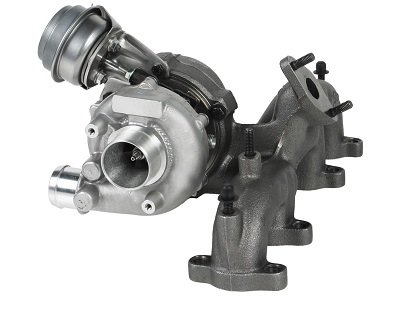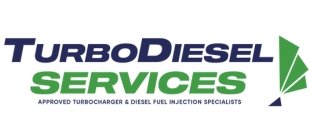Enhancing Performance: Aftermarket Upgrades for Turbochargers and Injectors

Aftermarket Upgrades for Turbochargers:
- Larger Turbos:
- Upgrading to a larger turbocharger can significantly increase airflow and boost pressure, resulting in higher horsepower and torque output.
- Larger turbos typically feature larger compressor and turbine wheels, as well as redesigned housings to accommodate increased airflow.
- Turbocharger upgrades may require modifications to the intake, exhaust, and engine management system to optimize performance and reliability.
- It’s important to note that upgrading to a larger turbocharger requires careful consideration. The turbocharger must be properly matched to the engine’s specifications to ensure optimal performance and prevent potential damage. Consulting with a knowledgeable professional or tuner is highly recommended to ensure a successful upgrade.
- High-Flow Turbine Housings:
- High-flow turbine housings are designed to reduce exhaust backpressure and improve turbocharger efficiency.
- These housings feature larger turbine inlet and outlet ports, as well as optimized volute designs to enhance exhaust gas flow.
- High-flow turbine housings can improve turbocharger response, reduce turbo lag, and increase overall power output.
- Variable Geometry Turbos (VGTs):
- Upgrading to a variable geometry turbocharger allows for greater control over boost pressure and airflow throughout the engine’s operating range.
- VGTs feature adjustable turbine vanes that optimize exhaust gas velocity and turbine efficiency based on engine speed and load.
- VGT upgrades can improve low-end torque, throttle response, and overall drivability, particularly in diesel engines.
- Hybrid Turbochargers:
- Hybrid turbochargers combine elements of different turbocharger models to achieve a balance of performance and reliability.
- These turbochargers may feature larger compressor wheels, upgraded bearings, or modified housings to improve airflow and boost response without sacrificing durability.
Aftermarket Upgrades for Injectors and Fuel Systems:
- High-Flow Injectors:
- Upgrading to high-flow fuel injectors allows for increased fuel delivery, supporting higher horsepower and torque levels.
- High-flow injectors feature larger flow rates and improved atomization characteristics compared to stock injectors.
- These injectors are essential for supporting turbocharger upgrades and other engine modifications that require additional fuel delivery.
- When upgrading to high-flow injectors, it’s important to ensure that they are properly calibrated and matched to the engine’s fuel requirements. This may involve adjusting the engine’s fuel management system or utilizing aftermarket engine management solutions. Again, seeking professional advice is crucial to avoid potential issues and ensure optimal performance.
- Upgraded Fuel Pumps:
- High-performance fuel pumps deliver increased fuel flow and pressure to meet the demands of turbocharged or high-horsepower engines.
- Upgraded fuel pumps may feature larger impellers, higher-capacity fuel lines, and improved internal components to maintain consistent fuel delivery under high loads.
- Fuel Pressure Regulators:
- Aftermarket fuel pressure regulators allow for precise control over fuel pressure, ensuring optimal fuel delivery and injector performance.
- Adjustable fuel pressure regulators allow tuners to fine-tune fuel delivery to match engine modifications and performance goals.
- Upgraded Fuel Rails and Lines:
- Upgrading to larger fuel rails and high-flow fuel lines reduces fuel flow restrictions and pressure drops, optimizing fuel delivery to the injectors.
- Larger fuel rails and lines can support higher fuel flow rates and help prevent fuel starvation under high-demand conditions.
- Aftermarket Fuel Management Systems:
- Standalone engine management systems offer advanced fuel control capabilities, allowing tuners to optimize fuel delivery and ignition timing for maximum performance.
- These systems feature customizable fuel maps, data logging, and real-time tuning capabilities to fine-tune engine performance and reliability.
Considerations and Precautions
While aftermarket upgrades for turbochargers and injectors can significantly enhance engine performance, it’s important to approach them with caution. Here are a few considerations to keep in mind:
- Compatibility: Ensure that the chosen upgrades are compatible with your specific engine model and any existing modifications.
- Tuning: Upgrading turbochargers and injectors may require recalibration of the engine’s tuning parameters. Professional tuning is highly recommended to optimize performance and prevent potential issues.
- Reliability: It’s crucial to select reputable brands and quality components to ensure reliability and longevity.
- Warranty: Keep in mind that aftermarket upgrades may void certain aspects of your vehicle’s warranty. Consult with the manufacturer or dealer to understand any potential implications.
Conclusion
Aftermarket upgrades for turbochargers and injectors offer exciting opportunities to unlock the true potential of your engine. Larger turbos, high-flow injectors, and aftermarket fuel systems can significantly improve performance, providing increased power and responsiveness. However, it’s essential to approach these upgrades with careful consideration and seek professional advice to ensure compatibility, reliability, and optimal performance. With the right upgrades and proper tuning, you can take your engine’s performance to the next level.
